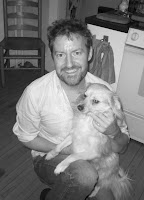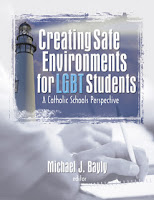 In this second installment of Frank D. Myers’ “long hard look” at the award-winning film Brokeback Mountain, three aspects of gay life that the film either passes over briefly or bypasses altogether are explored: Vietnam, AIDS, and religion.
In this second installment of Frank D. Myers’ “long hard look” at the award-winning film Brokeback Mountain, three aspects of gay life that the film either passes over briefly or bypasses altogether are explored: Vietnam, AIDS, and religion._____________
If fiction were life, one or the other or both of the main characters in the film would have ended up in Vietnam. I guarantee it. Neither being a kid nor old rodeo injuries were barriers back then. I’m blind in one eye as well as queer – and Uncle Sam still wanted me. And, no, I don’t remember being asked if I had “homosexual tendencies,” and if I was asked, I surely would not have told.
Over the years, I probably have fussed more about Vietnam than I have about being queer; and that’s a photo of my high school hero and friend Richard Cesar, who died over there in ’69, on my desk at the office – not a photo of a veteran of the gender wars. That photo of Richard reminds me of how lucky I am to be alive, of certain responsibilities I have to him because of it, and of how proud I am of the company I kept during that miserable war. Looking back, more than 30 years later, I would not have been any place else or have done anything differently.
Gay men, lesbians, and transgender people have always served in the military in significant numbers, and still do – beginning in my lifetime with Vietnam and continuing now, during the War on Terrorism. Damned if I know why, other than the fact we’re just like everyone else. “Don’t ask, don’t tell” makes it especially galling now, however. How dare our government insult us this way – implying that people who are gay are unfit for service and that our straight friends are incapable of behaving like adults and merely asking, “So what?” if they were to find out.
AIDS would have also been a factor in the lives of Ennis and Jack as they grew older – especially if Jack fulfilled some of the expectations of the promiscuous gay male stereotype he was cast in. Unprotected sex, careless and casual sex, was deadly then, and remains so now for us all. And we need to remember that.
 Religion is the big one, for me at least. Ennis, the movie tells us, was raised Methodist; Jack, Pentecostal. I do not believe that those boys would have been in the deadly trap that they were if not for an institutionalized Christian church that for most of its history has consistently practiced and preached hate for anyone who differed, all in the name of a guy who taught love, grace, and forgiveness for all, and who cautioned against casting the first stone.
Religion is the big one, for me at least. Ennis, the movie tells us, was raised Methodist; Jack, Pentecostal. I do not believe that those boys would have been in the deadly trap that they were if not for an institutionalized Christian church that for most of its history has consistently practiced and preached hate for anyone who differed, all in the name of a guy who taught love, grace, and forgiveness for all, and who cautioned against casting the first stone.Collectively, calling ourselves Christians, we have burned heretics; instituted and enthusiastically practiced anti-Semitism, capping our efforts with the Holocaust; enslaved and denigrated the black race; and tried darned hard to wipe out this continent’s native American peoples and their cultures.
Although there have been many advances quite recently in the relationship between Christians and those we’ve loved to hate, the church has quite a ways to go in its approach to us. We remain for many who call themselves Christians the final clearly-defined group that it’s OK to hate and vilify.
Listen to how Ted Haggard described what presumably is his own gay nature when apologizing to his congregation in Colorado Springs: “There is a part of my life that is so repulsive and dark that I have been warring against it all of my adult life,” he wrote; and “Then, from time to time, the dirt that I thought was gone would resurface, and I would find myself thinking thoughts and experiencing desires that were contrary to everything I believe and teach.”
He’s talking about us, boys and girls.
That is the legacy of a morally and spiritually bankrupt so-called Christianity in that poor tormented man’s life as it still grasps him with dirty and blood-stained fingers.
 Having said that, it must be added that a good percentage of Christians no longer hold those old dark and hateful views or are moving away of them. And, astonishingly, many of us who are unapologetically queer, including myself, identify as Christians.
Having said that, it must be added that a good percentage of Christians no longer hold those old dark and hateful views or are moving away of them. And, astonishingly, many of us who are unapologetically queer, including myself, identify as Christians.We have managed this through the grace of God and by bypassing the institutional church, in some cases at considerable personal cost; going directly to the source of our faith, then coming back to forge a new kind of relationship with the flawed institution that claims Christ’s name.
Next: The Shadow of the Closet on Brokeback Mountain – Frank Myers explores the “principal lesson” he sees in Brokeback Mountain: “the toll that the closet, no matter how it is imposed, has taken and continues to take in the lives of queer people.”
For Part 1 of this series, click here.
Opening Image: Heath Ledger as Ennis Del Mar and Jake Gyllenhaal as Jack Twist in Brokeback Mountain.
See also the previous Wild Reed posts:
Frank Myers’ “Long Hard Look” at Brokeback Mountain
Christian Draz’s Critique of Brokeback Mountain
Heath Ledger (1979-2008)
The “Real Gay Cowboy” Remembers His Friend, Heath Ledger






















No comments:
Post a Comment